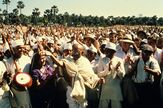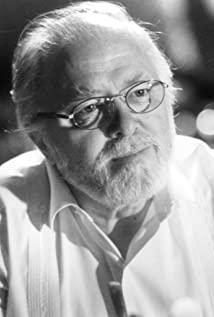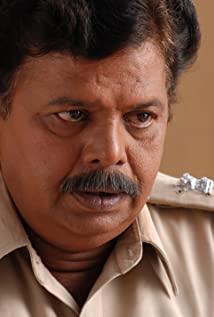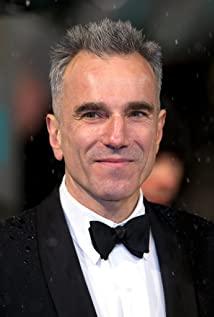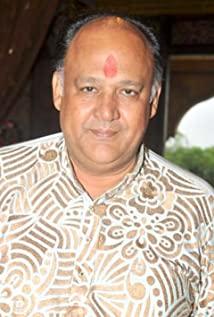+ 1948.01.30, New Delhi, India, Gandhi's assassination, state funeral, reports and mourning from various countries, and Einstein's eulogy;
+ 1893, South Africa, just arrived a week ago, took a train to file a lawsuit for an Indian businessman, discussed hell with the flight attendant, refused to move from first class to third class and was kicked off the train (experienced by apartheid), while at that time in In South Africa, Indians cannot walk with Christians on the pavement, otherwise they will be beaten, so they called for burning the pass as the first step to fight for the equal rights of the British people, and published newspapers and lawsuits in South Africa and the United Kingdom. Beaten up, nearly beaten later when he and Fr Andrews went through the streets at his own law firm, and then heard that the pass laws were going to be changed by General Smuts to make it worse. The New York Times reporter Walker first visited Smuts, and then went to interview Gandhi's autonomous farm. The autonomous farm said it was built to make people enlightened. Mrs. Gandhi was almost kicked out by Gandhi because she was also on duty to clean the toilet, and she finally agreed. Regarding the revision of the law, Gandhi and others held speeches, calling for _non-violent resistance, and then marched. The miners went on strike to participate. But everyone who opposed the new law, including women, was arrested. Andrews called for legal equality in church. Public opinion also reported that 1,000 people were arrested. Smuts reached an agreement with Gandhi to temporarily drop the issue of immigration and release all personnel, and Gandhi borrowed him a shilling to catch a taxi and returned to India.
+1915, Gandhi returned to India, Patel and Nehru greeted him at the pier, and then met the Muslim leader Jinnah, and Professor Gokhale to discuss the issue of Indian autonomy. It was Professor Gokhale who suggested Andrews to go to South Africa, and when Gandhi said that India was like a foreign country to him, it was he who suggested that Gandhi go to various places to learn about India.
+Traveling in India, Andrews was invited to the top of the train. When the people demanded autonomy, the British troop carrier was derailed and there were casualties. So the Congress party held a speech conference. Gandhi criticized the people who were separated from the toilers and only wanted to replace the British rule. its point of view. Nehru and others went to Gandhi's countryside to discuss self-government. Gandhi talked about the Anglo-Indian ruling relationship and the issue of Indians falling under Western culture. He talked about whether resistance is for change or punishment. He believed that punishment should be left to God, so he adopted non-violence. It is better to resist for change.
+Champalan County: In 1916, Gandhi saw the farmers being brutally oppressed by the owners of the sophora plantation; 1917, the first non-violent non-cooperation movement was launched here, arrested, Andrews visited, Gandhi advised him to go Fiji wanted to let the Indians do it themselves, and at the same time helped to distribute news as soon as possible, so that the court could have a trial before the army arrived, so the acquittal and other follow-up. Nehru also invited friends to the hearing and participated in Gandhi's rural life. The Governor's House complied with the Indians' terms, but seemed to be packing Gandhi.
+1919, protesting the "Rollat Law": Gandhi walked to Jinnah's house to discuss solutions with Nehru, Patel and others, Gandhi proposed a nationwide strike and was arrested, so there were many small-scale riots, and the UK was also afraid, and proposed that if Gandhi could stop the riots Just released, but General Dyer slaughtered the rally that preached nonviolence and shocked the world
+ Issues of Indian autonomy: Negotiations, burning of imperial clothing, Kallenbach picks up Patel, Maulana and Admiral's daughter Slade, Slade goes to India to be Gandhi's adopted daughter and changes her name to Mirabehn, discusses Hindu-Muslim conflict and the British army; in 1922, the police were arrested Demonstrators beheaded, Gandhi and others discussed countermeasures, decided to go on a hunger strike to repent of the violence until the violence stopped, successful, and then arrested for obstructing the peace, so he told Nehru that there would be no more riots, and also told Nehru that if he was arrested, it would be possible for India to be autonomous. At the trial, the judge took the lead and stood up to pay tribute, admitted the note for obstructing the public order, admitted guilt, and asked for a heavy sentence. The judge sentenced him to 6 years, but he hoped to be commuted by the King of England; after a few years, Walker came back to interview and reproduce the wedding ceremony. , I thought of a solution at the seaside, so I prepared to make salt to declare independence to resist the British. The new governor decided to ignore it, so it made big news. The new governor decided to arrest other leaders and family members other than Gandhi. A total of 100,000 people, but there was no riot. Happened, so the new governor decided to arrest Gandhi to spark a riot, however people would rather be beaten in rows than riot, Walker reported, the new governor invited Gandhi to a meeting to discuss the possibility of Indian autonomy, Gandhi was received by many in London Love, but Jinnah criticized Gandhi for returning empty-handed but the boycott stopped just like that, but Gandhi thinks that Britain is not so determined and may soon be self-governing, but it can't take advantage of WWII to take advantage of self-government, but wants to be like a friend Saying goodbye to the UK; being detained at Arkham Palace for anti-war speeches, Margaret came to interview, Gandhi said India was definitely autonomous after World War II, but worried about what might happen, because Jinnah had already cooperated with the UK, and also talked about poverty and poverty in India The backwardness of technology was also asked if non-violence could deal with Hitler, and the answer was that non-violent resistance would bleed, and violent resistance would also bleed, talking about only four attempts; Gandhi died with his wife; India became independent.
+ Partition of India and Pakistan: Jinnah is worried that Muslims in the minority will be bullied; Hindu radicals shouted Jinnah to die outside the Gandhi compound, Gandhi went to talk with Jinnah, and proposed that Nehru give up the first prime minister to Jinnah, Nehru accepted but proposed Worrying; India and Pakistan became independent; in 1947, believers migrated and riots occurred; Gandhi went on a hunger strike at a Muslim house, and things got better, Nehru went to scold Gandhi's dead followers, and brought the Muslim leader Suhrawardy to personally promise not to fight again, sharing the stage with Nehru He gave a speech to stop the violence. Radicals came to disarm. One of the sons was murdered by a Muslim, so he also killed a Muslim child. Gandhi proposed to raise a Muslim child to heal the pain. The violence ended and the hunger strike stopped;
+Assassinated to death.
View more about Gandhi reviews





